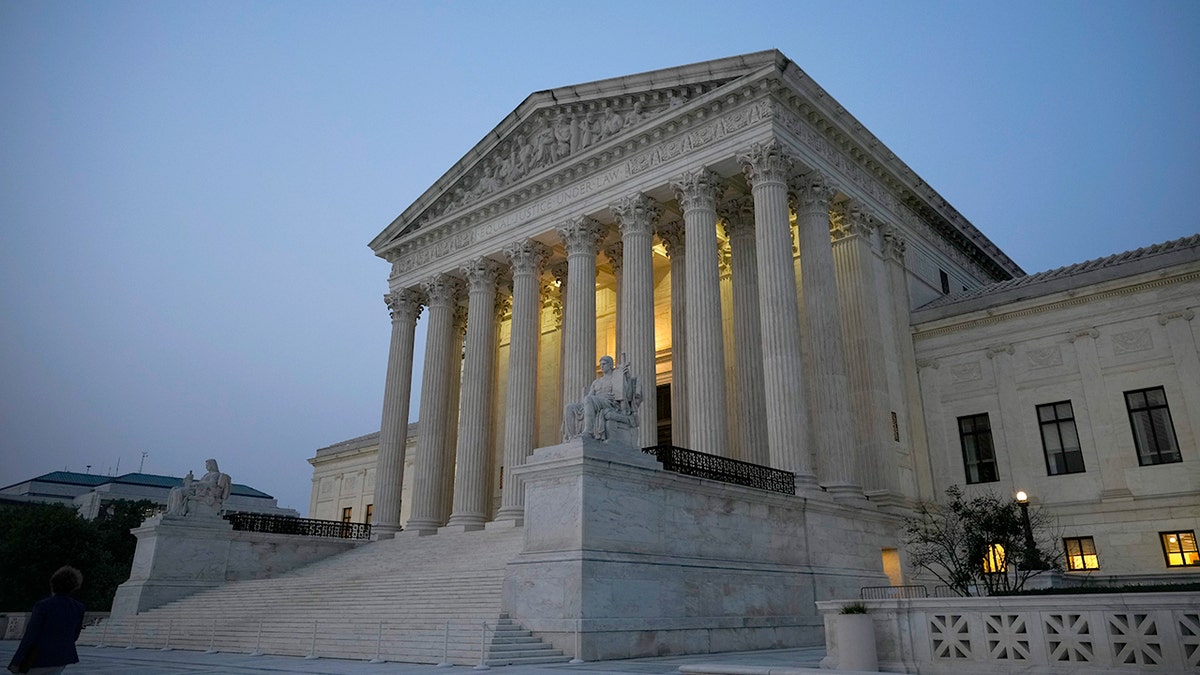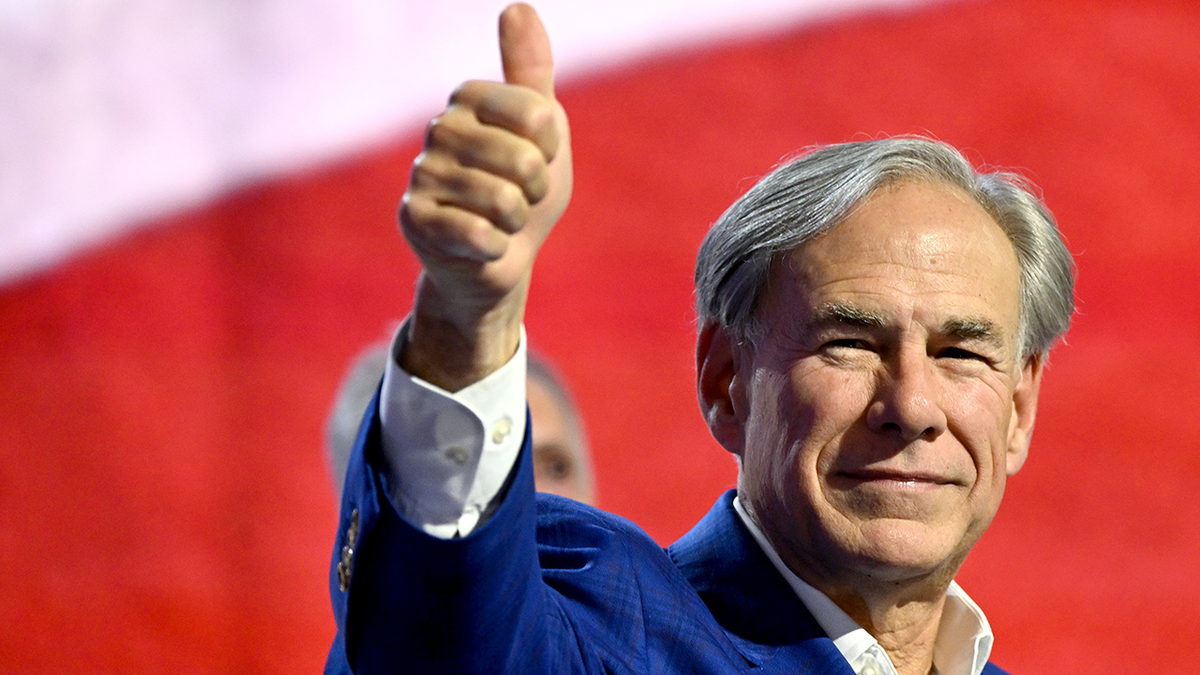INTERNACIONAL
Long-held SCOTUS precedents could undercut Portland, Chicago National Guard lawsuits

NEWYou can now listen to Fox News articles!
President Donald Trump’s use of the National Guard in Oregon and Illinois faced dual tests in court this week, as his administration argued the two Democrat-led states are obstructing federal immigration enforcement.
Drawing on a well of constitutional provisions and court precedents, government lawyers have sought to justify deploying the National Guard in Portland and Chicago. Some legal experts say the president has the law on his side, while others worry Trump is threatening state sovereignty.
Democratic leaders have responded with outrage and indignation to Trump’s attempts to send federal troops to their jurisdictions. Chicago Mayor Brandon Johnson established «ICE-free zones» across Chicago to prevent federal agents from using any city-owned property in their ongoing operations. Conservative critics have compared this action and similar opposition to the Trump administration from Democratic leaders to attempts to nullify federal law, hearkening back to the 19th century.
«Illinois’s own Abraham Lincoln had some ideas about how to deal with this John C. Calhoun-esque ‘nullification,’» attorney and conservative commentator Josh Hammer wrote on X.
PRITZKER SUES TRUMP TO BLOCK NATIONAL GUARD ACTION IN ILLINOIS
Law enforcement detains a protester near an Immigration and Customs Enforcement facility in Broadview, Ill., Oct. 3, 2025. (AP/Erin Hooley)
Joshua Blackman, South Texas College of Law professor, said the federal government does not need permission from states to defend federal facilities. The Trump administration’s position is that it needs to deploy the National Guard to protect federal personnel and Immigration and Customs Enforcement buildings.
«This is a principle that goes back to the beginning of the Republic,» Blackman told Fox News Digital, pointing to the landmark case McCulloch v. Maryland, which found that Maryland could not tax a national bank created by Congress.
The high court said in that case that allowing a state to impose such a burden on a federal institution would violate the Constitution’s supremacy clause, which says federal law trumps state law.
The need for the National Guard
During one set of oral arguments this week before the U.S. Court of Appeals for the 9th Circuit, a Trump administration lawyer argued that unrest in Portland, prompted by ICE activity, justified the deployment of about 200 National Guard soldiers.
«For months, the ICE facility in Portland and the federal law enforcement officers who work there have faced a steady stream of violence, threats of violence and harassment from violent agitators bent on impeding federal immigration enforcement,» said Eric McArthur, arguing for the Justice Department.
The rebellion statute that Trump is using to federalize the National Guard, which governors have shared authority over, can be invoked in those situations, McArthur argued.
He also said it was the government’s position that the courts had no say over Trump’s assessment of the need for the military. Blackman made a similar point.
«The statute lets the president make the judgment over the need. It’s not clear to me that a court can second-guess it,» Blackman said.
States are ‘frustrating’ immigration enforcement
In court papers, the Trump administration has also cited a case from 1890, Neagle v. Cunningham, which established that the president has authority under the Constitution’s take care clause to «take care» that federal laws be carried out, including by doing what is necessary to protect those executing immigration laws.
In Neagle, a U.S. marshal shot and killed a person who attacked a Supreme Court justice, and the Supreme Court found that the State of California could not prosecute the marshal for murder since the marshal was protecting a federal officer.
FEDERAL JUDGE BLOCKS TRUMP’S NATIONAL GUARD DEPLOYMENT TO PORTLAND AMID CONSTITUTIONAL CHALLENGE

The facade of the Supreme Court (Drew Angerer/Getty Images)
Blackman said that states have for years been «frustrating» federal immigration enforcement and that these blue-state lawsuits trying to challenge the National Guard’s presence were an instance of that.
He said the states’ resistance did not «quite rise to the level of nullification,» like when states in the South tried to block integration of segregated schools, but that it was «in the ballpark.» If states were to defy court orders, that could escalate matters, Blackman said.
The lawsuits, which could rise to the Supreme Court, especially if the circuit courts were to rule against Trump in the coming days, could help to sharpen the dividing line between state and federal authority over law enforcement.
Policing falls under ‘state’s responsibilities’
Like Oregon and Illinois, Matt Cavedon, a director at the CATO Institute, said the 10th Amendment is also in play in these cases and that it implies that the Trump administration cannot typically take over a state’s law enforcement responsibilities.
Cavedon also said it was unusual, in his view, that a Republican government would adopt a more expanded view of federal power.

The Department of Homeland Security is criticizing Illinois Democratic Gov. JB Pritzker (right) for not being proactive in responding to a chaotic anti-ICE protest in Broadview, Ill., last week. (Anna Moneymaker/Getty Images and Jon Stegenga via Storyful)
«It’s not usually conservatives who are arguing that there are just vast unenumerated federal powers belonging to the president, certainly in the domestic context,» Cavedon told Fox News Digital.
CLICK HERE TO GET THE FOX NEWS APP
Cavedon said the events in the two states are «really core issues of public security and safety, which are at the heart of what a state’s responsibilities are.» Oregon and Illinois leaders have made similar claims that nothing extraordinary was playing out crime-wise to warrant National Guard intervention.
«I think the 10th Amendment answers a question: Any powers that are not conferred on the federal government are reserved to the states, respectively,» Cavedon added.
supreme court,donald trump,national guard,chicago,oregon
INTERNACIONAL
«Acabo de salir del infierno», el crudo relato del argentino-israelí sobre la cárcel en Venezuela, su liberación y un cara a cara con Diosdado Cabello

El infierno, según Yaacob
El cara a cara con Diosdado Cabello
El recibimiento en Tel Aviv
INTERNACIONAL
Tax fight puts California on collision course as billionaires leave for red states

NEWYou can now listen to Fox News articles!
California’s fight over taxes and regulation is colliding with a broader economic shift, as wealthy residents and entrepreneurs take their money elsewhere — delivering a windfall of capital, jobs and taxpayers to red-state competitors.
That shift is already visible in migration patterns across the country.
From 2021 to 2024, Texas and Florida posted the largest net population gains, while California and several northeastern states recorded some of the steepest losses, according to IRS and U.S. Census Bureau data.
CALIFORNIA WEALTH TAX PROPOSAL HEMORRHAGES $1T AS BILLIONAIRES FLEE
Those migration trends are now colliding with a political fight over how the Golden State taxes its wealthiest residents.
At the center of the controversy is a proposed ballot initiative backed by the Service Employees International Union that would impose a one-time 5% wealth tax on Californians with assets exceeding $1 billion, including unrealized gains.
If the measure qualifies for the November ballot and is approved by voters, it would apply retroactively to anyone who lived in California as of Jan. 1, 2026.
Supporters say the measure would boost funding for healthcare and education, while critics warn it could drive investment and talent out of the state.
California Gov. Gavin Newsom has recently said he opposes the Billionaire Tax Act. (Wally Skalij/Los Angeles Times/Getty Images)
Those concerns come as income migration data already shows money moving out of several traditionally blue states.
IRS figures indicate several traditionally blue states losing billions of dollars in adjusted gross income — the income used to calculate federal taxes — as residents move to lower-tax states, particularly across the South and Sun Belt.
CONSERVATIVE STATES SEE LOWER INFLATION THAN LIBERAL ONES NATIONWIDE, WHITE HOUSE DATA SHOWS
Steve Moore, co-founder of Unleash Prosperity, said California’s tax base will continue to erode as more high-profile tech billionaires relocate ahead of the proposed wealth tax.
«California’s tax base took a massive hit at the end of last year. Silicon Valley billionaires left the state, taking their wealth and future wealth with them,» Moore said, attributing those moves to the proposed 2026 Billionaire Tax Act, which targets the state’s ultra-wealthy.
«These business tycoons are running to states like Florida and Texas because of lower taxes, economic freedom and future economic prosperity,» he said, describing it as «voting with their feet.»
«It is common sense for business leaders to pick places for future financial success rather than economic suffocation,» he added.
MAMDANI’S RISE IN NYC MIRRORS ECONOMIC FLIGHT TO THE SOUTH, STUDY SHOWS

California Gov. Gavin Newsom said the wealth tax should be handled at the national level. (Bill Pugliano/Getty Images)
California Gov. Gavin Newsom has also come out against the proposed wealth tax, warning it could backfire even as he defends the state’s existing progressive tax system.
«For months, I’ve been fighting this, because it’s exactly what I feared would happen — and now it has. This is something I’ve been warning about for years,» Newsom told The New York Times.
Newsom said he has long opposed the measure and believes taxing the ultra-wealthy should be addressed at the national level rather than state by state.
GET FOX BUSINESS ON THE GO BY CLICKING HERE

Texas Gov. Greg Abbott’s office told Fox News Digital that he will continue welcoming businesses and residents fleeing California to his state. (David Paul Morris/Bloomberg via Getty Images)
Even as Newsom raises alarms, Republican governors in Florida and Texas say they are already benefiting from businesses and residents leaving California.
Texas Gov. Greg Abbott’s office echoed that sentiment, saying the state continues to draw companies seeking lower taxes and a lighter regulatory environment.
«People and businesses vote with their feet, and they are continually choosing to move to Texas more than any other state,» Abbott spokesman Andrew Mahaleris said.
He added that Texas’ lack of corporate and personal income taxes and its predictable regulatory climate have made it an attractive destination for companies weighing a move out of California.
Florida Gov. Ron DeSantis called the California proposal «economic insanity.»
california,gavin newsom,taxes
INTERNACIONAL
Republican senator condemns alleged Syrian army abuses as ceasefire follows Aleppo fighting

Trump to meet with Syrian president at White House
The Shadow Warriors Project founder Mark Geist joined ‘Fox & Friends First’ to discuss Ahmed al‑Sharaa’s White House visit and how the bilateral ties could impact the ability of the U.S. to fight terror abroad and more.
NEWYou can now listen to Fox News articles!
The chairman of the Senate Foreign Relations Committee pressed the Syrian government to hold perpetrators accountable amid accusations of grave human rights violations within Syria’s army during the seizure of two Kurdish neighborhoods in Aleppo. Some reports claim jihadist-aligned members of the army were responsible for the abuses.
Jim Risch, R-Idaho., wrote on Tuesday on X that «I am gravely concerned about the conduct of armed forces in Aleppo, Syria, over the past week and urge the government to hold accountable those who committed these egregious acts. After years of war, the role of Syria’s new government and armed forces is to safeguard the inherent rights of its citizens, not to infringe upon them.»
Risch responded to an X Post from the Syrian Network condemning the desecration of a woman’s body in Aleppo, where it was thrown from a high floor by a member of the Syrian Army.
DEADLY STRIKE ON US TROOPS TESTS TRUMP’S COUNTER-ISIS PLAN — AND HIS TRUST IN SYRIA’S NEW LEADER
Columns of smoke rise from the site of artillery shelling that targeted the area near Aleppo’s Abdelrahman Mosque on Jan. 8, 2026, amid intense clashes between government forces and the Kurdish Syrian Democratic Forces (SDF) forces. Syria’s military warned civilians in two besieged Kurdish neighborhoods in the city of Aleppo to leave on Dec. 8, as it prepared to conduct a fresh wave of strikes targeting Kurdish positions. Thousands have already fled the area following clashes between the army and Kurdish-led forces that have killed more than a dozen people. (Omar Haj Kadour / AFP via Getty Images)
On Tuesday, Adm. Brad Cooper, the commander of CENTCOM, appealed «to all parties to exercise maximum restraint» in the Aleppo area.
After days of intense clashes, Syrian army forces controlled by the former U.S. designated terrorist Ahmed al-Sharaa, who was previously a member of the terrorist movements al-Qaeda and the Islamic State, seized two neighborhoods (Sheikh Maqsood and Ashrafiyeh) on Sunday in the city of Aleppo, where members of the Kurdish-led Syrian Democratic Forces, or SDF were based.
The SDF played a critical role in aiding U.S. forces to defeat the Islamic State in Syria.
ISRAEL SHUTS DOOR ON TURKEY IN GAZA AS TRUMP PRAISES ERDOGAN, PLAYS DOWN CLASH
Mazloum Abdi, the leader of the SDF, wrote on X that an agreement via international mediation had cemented the evacuation of Syrian Kurds from the two districts in Aleppo.
Abdi wrote that, «With mediation by international parties to halt the attacks and violations against our people in Aleppo, we have reached an understanding that leads to a ceasefire and ensures the evacuation of the martyrs, wounded, stranded civilians and fighters from the Ashrafiyeh and Sheikh Maqsood neighborhoods [in northern Aleppo] to North and East Syria [Rojava],» according to the Kurdish news organization Rudaw.
The U.S. Ambassador to Turkey, Tom Barrack, who also serves as the Special Envoy for Syria, wrote on X on Saturday after the Aleppo ceasefire agreement was apparently reached, that he met with President «al-Sharaa, Foreign Minister Asaad al-Shaibani, and members of their team in Damascus to discuss recent developments in Aleppo and the broader path forward for Syria’s historic transition.»

Soldiers of the Syrian army in the entrance of Sheik Maksoud neighborhood during continuing fighting between the Syrian forces and the SDF on Jan. 10, 2026 in Aleppo, Syria. A ceasefire announced yesterday did not take hold as fighting continued between the Syrian army and Kurdish fighters in the Ashrafieh and Sheikh Maqsoud neighborhoods of Aleppo. Overnight, the army announced that it had completed a security sweep of the Sheikh Maqsoud neighborhood. (Adri Salido/Getty Image)
He added, «The Syrian government has reaffirmed its commitment to the March 2025 integration agreement with the SDF, which provides a framework for incorporating SDF forces into national institutions in a manner that preserves Kurdish rights and strengthens Syria’s unity and sovereignty.»
Wladimir van Wilgenburg, a Kurdish studies expert, told Fox News Digital prior to the Syrian army ousting SDF from Aleppo districts that, «Kurds suspect that Turkey is pushing Damascus to push out Kurdish forces from Aleppo to give a major blow to the SDF, so that they will make more concessions to Damascus and make the Kurdish negotiation position weaker.
«Ankara wants the SDF to integrate into the Syrian army on an individual basis, not as separate divisions,» van Wilgenburg said. He added, «Moreover, the SDF wants a decentralized system, while Damascus wants a centralized system. The Kurds have decided to make a stand in Aleppo. The current situation could spark a widespread conflict that could undermine Trump’s policy of creating sustainable peace in the Middle East.»
ISRAEL AND SYRIA RESUME DIPLOMATIC DIALOGUE AFTER MONTHS OF SILENCE UNDER US MEDIATION

Tom Barrack met with the Syrian president on behalf of the United States on Saturday, Jan 10, 2025 (@USAMBTurkiye via X)
The Aleppo health directorate said at least 24 civilians were killed and more than 120 people were injured during five days of clashes.
The government of Turkey’s President Recep Tayyip Erdogan views the Syrian Kurds as a threat to Turkey because many Kurdish organizations across the region seek an independent state that would include a part of Turkey, where there is a large Kurdish population. Erdogan has over the years launched devastating attacks on the Kurds in northern Syrian.
Retired four-star Army general Jack Keane previously told Fox News’ Mark Levin on «Life, Liberty & Levin» that President Trump during his first term was able to stop Erdogan’s attacks on the Syrian Kurds.
The General Command of the SDF issued a statement last week, stating «We warn that the continuation of this aggression against civilians will lead to serious repercussions that will not be limited to Sheikh Maqsoud and Ashrafieh or to the city of Aleppo alone, but will risk plunging all of Syria back into an open battlefield. Full responsibility for this will rest with those who persist in choosing the use of force against civilians.»
Al-Sharaa‘s rule over the past year has seen radical Islamist forces aligned with his army engage in massacres of a range of Syrian minority groups, from Alawites to the Druze. Radical Islamists have also murdered Syrian Christians.
Sinam Mohamad, the representative of the Syrian Democratic Council to the U.S., told Fox News Digital that a «decentralized system will save Syria from any or conflict in the future.» She said «We regret foreign influence» in Syria, noting that «Turkey still has influence on Damascus.» She said that Turkey seeks to «provoke» in Syria, citing the recent attacks in Aleppo.

Rebel forces seized Mengh Airbase and the city of Tel Rifaat in the Aleppo countryside on Dec. 1, 2024, following clashes with the Syrian Democratic Forces (SDF) and Syrian regime forces. (Photo by Rami Alsayed/NurPhoto via Getty Images) (Photo by Rami Alsayed/NurPhoto via Getty Images)
Mohammad said the Syrian Kurds have a «negotiating committee to discuss the autonomous government in northeastern Syria. We also have women units in the SDF who have been fighting against ISIS.» She asked what is the «future of women in the army» in Syria? «Damascus does not want women units in the army. In Israel, they have women in the army.»
She said this part of the negotiations with al-Sharaa’s government with respect to the March 2025 agreement reached between the SDF and the Syrian regime.
Van Wilgenburg said, «The clashes began after the latest negotiations between the Kurds and Damascus over the implementation of the March 10 agreement did not produce any results. Damascus earlier verbally agreed on three SDF divisions, but there were remaining discussions and different view points over command and control. The last meeting took place on Jan. 4 in Damascus.»

FILE: Mazloum Abdi (Kobani), commander-in-chief of the Syrian Democratic Forces (SDF), meets with the Raqa civil council in Syria’s northeastern city of Hasakeh on Nov. 1, 2020. (Delil Souleiman/AFP via Getty Images)
According to the SDF, «the neighborhoods of Sheikh Maqsoud and Ashrafieh have been under complete siege by factions of the Damascus government for more than six months. These neighborhoods do not, under any circumstances, constitute a military threat, nor can they serve as a launching point for any attack on the city of Aleppo.»
CLICK HERE TO DOWNLOAD THE FOX NEWS APP
The statement added that, «The allegations promoted by bloodthirsty circles within Damascus-affiliated factions, claiming the existence of intent or military movement by our forces from these neighborhoods, are false and fabricated. They are used as a pretext to justify the siege, shelling and massacres committed against civilians.»
Fox News Digital reached out numerous times to the spokesperson for Turkey’s embassy in Washington D.C. as well as the U.S. State Department.
syria,middle east,conflicts,terrorism,foreign policy senate

 CHIMENTOS2 días ago
CHIMENTOS2 días agoLa triste despedida de Jorge “Corcho” Rodríguez a Pía, su asistente por 30 años: “Gracias por tu amor”

 POLITICA1 día ago
POLITICA1 día agoLa AFA giró US$8 millones a cinco empresas en Miami que ya no existen: un argentino disolvió hace seis días una firma clave

 POLITICA2 días ago
POLITICA2 días agoIncendios en Chubut: el fiscal general aseguró que el responsable podría recibir hasta 20 años de prisión





























